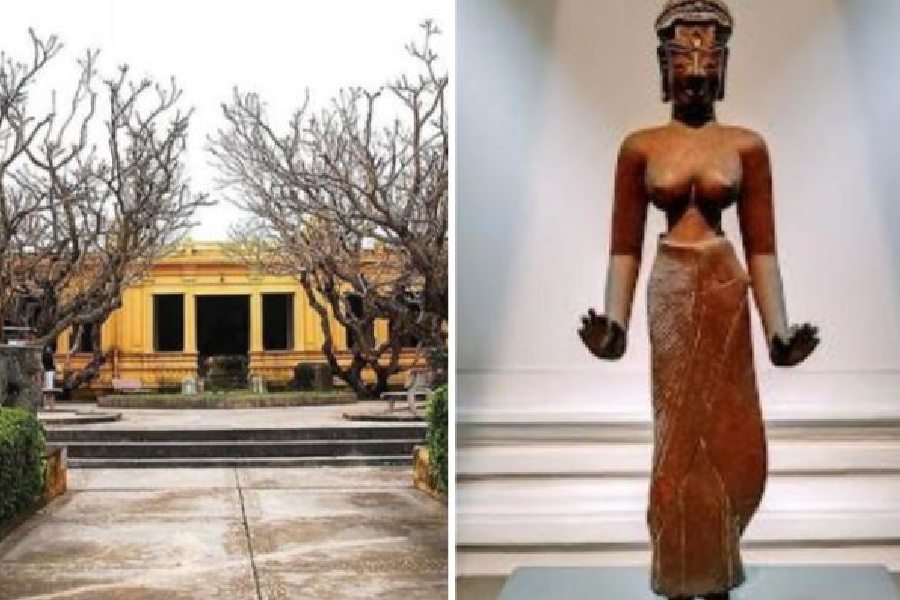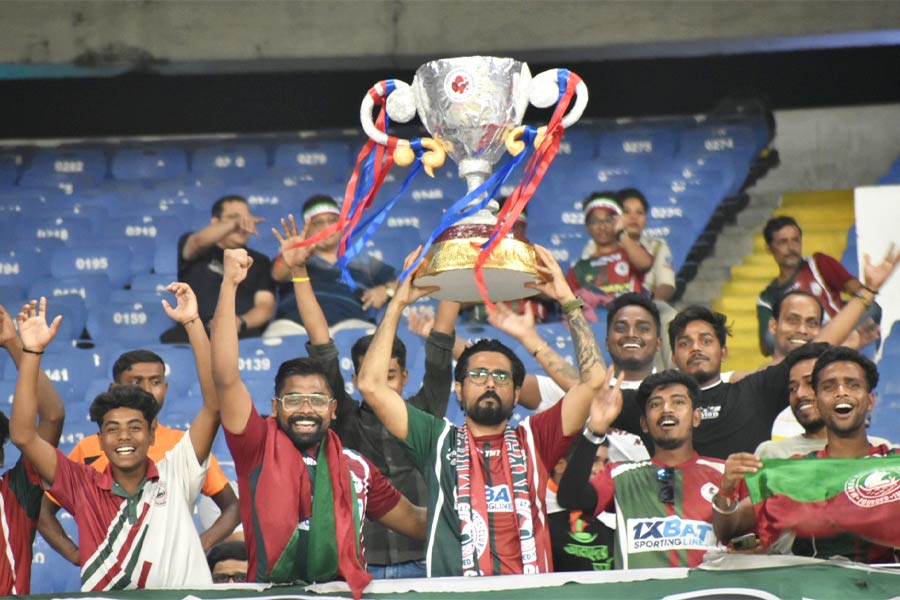The ruins of about 200 Hindu temples at various sites in central Vietnam and Hindu idols excavated and now preserved in the national museum of Vietnam speak of deep religious and cultural ties between the country and India.
A photo exhibition and a seminar at the Indian Museum titled Imprints of Indian Culture in Vietnam was held on May 18 to mark the 133rd birth anniversary of Ho Chi Minh, the revolutionary statesman of Vietnam.
The occasion was also to celebrated International Museum Day.
The exhibition had about 35 photographs of the Hindu temple ruins and idols taken by the late journalist Deepesh Sharma, who visited Vietnam between 1982 and 2019 and authored several books, including Traces of Indian Culture in Vietnam.
According to Sharma, India-Vietnam relations can be traced back to about the 1st-century AD or even earlier when maritime traders from Champa, present-day Bhagalpur in Bihar, Amravati, near Guntur in Andhra Pradesh, Kalinga and other places in India started sailing to Vietnam and settling there.
From the 2nd to 15th-century AD, there was a Hindu kingdom in central Vietnam from Binh Thuan to Quang Nam covering an area of about 1,000km. Here, they not only constructed thousands of temples but also installed idols and images of Hindu deities like Shiva, Vishnu, Brahma, Ganesha, Mahishamardini, Indra and Skanda.
“Hindu religion flourished in the region in a liberal form. This Hindu kingdom was not established through any invasion or force but by common acceptance as there had never ever been any religious or communal conflict between the people of the region and the Hindus of Vietnam. With the decline of the kingdom, even the religion declined as both were interdependent,” said Kusum Jain, president of the Indo-Vietnam Solidarity Committee that organised the exhibition and a seminar.
“A distinct influence of Indian art, culture, tradition and refinement is still very much evident in Vietnamese society. Even today, there are ruins of about 200 temples built between the 7th and 18th-century in Vietnam. The Vietnamese society neither converted nor damaged or destroyed the temples. On the contrary, under the supervision of the government of Vietnam, restoration of the ruined temples is in progress with the assistance of local and foreign archaeologists,” she said.






